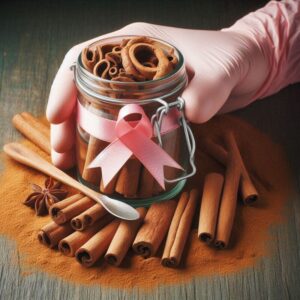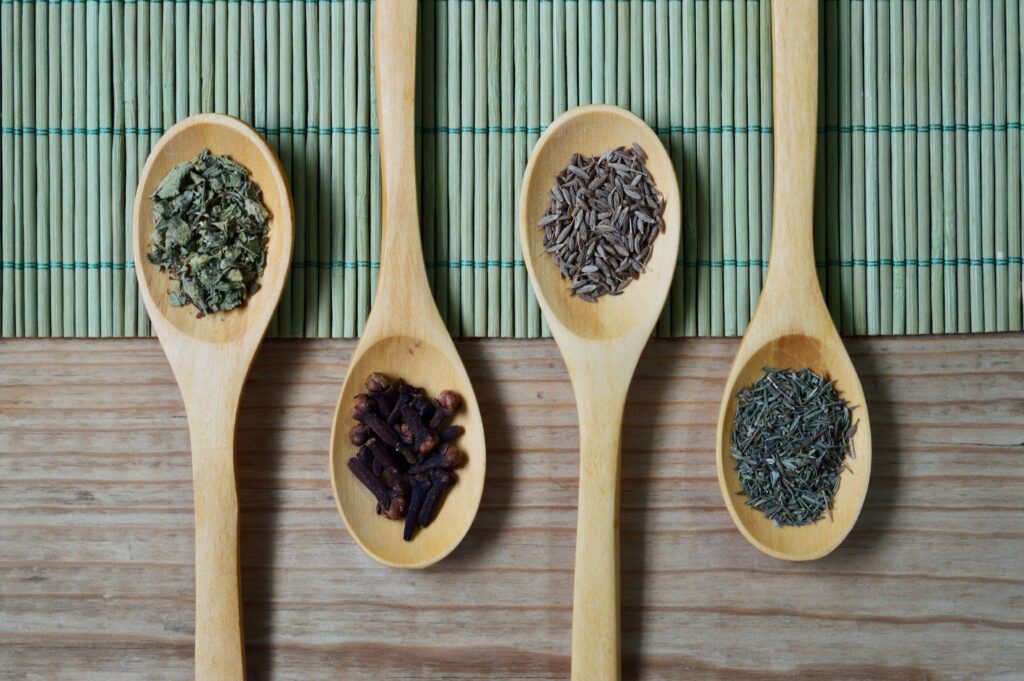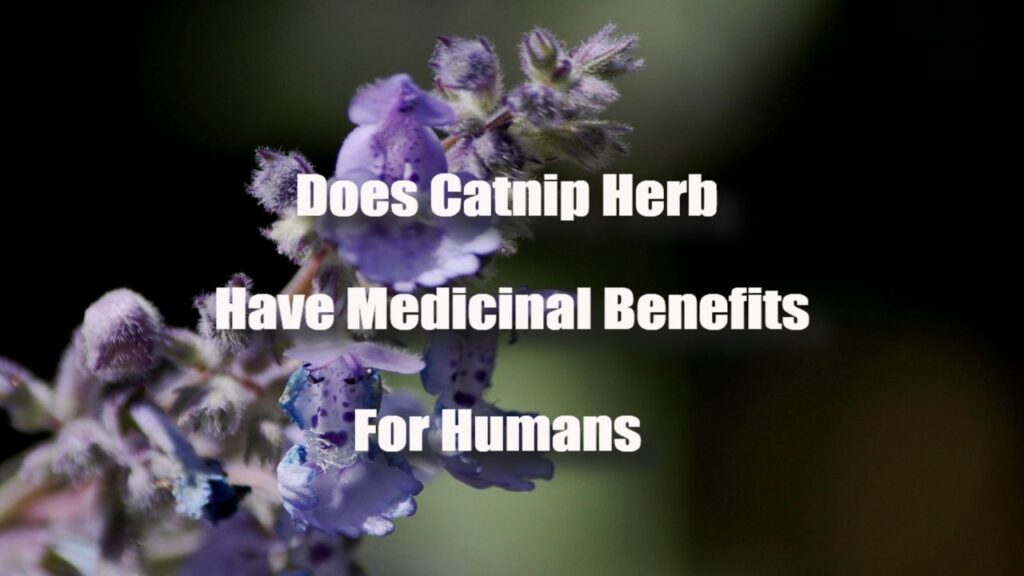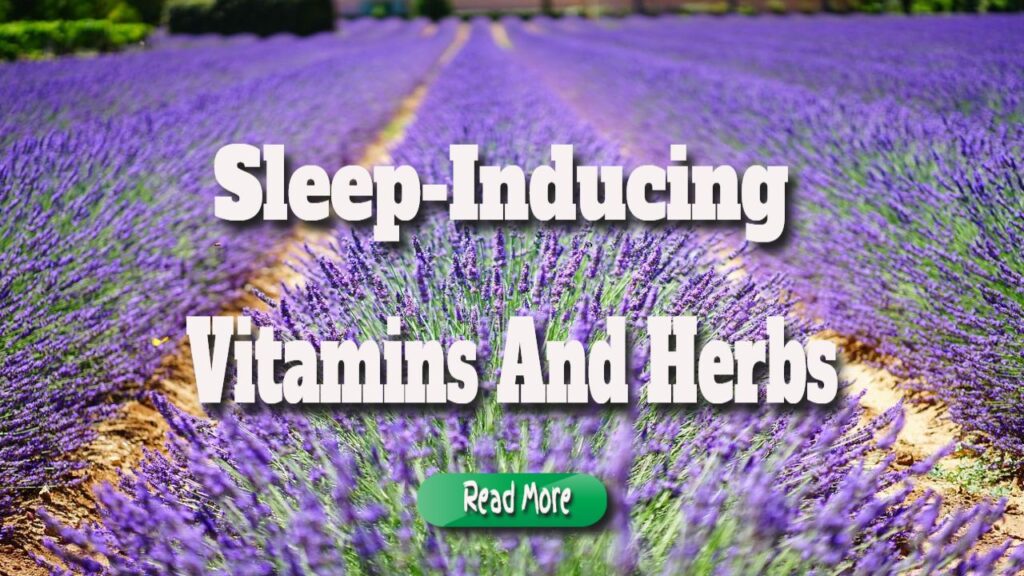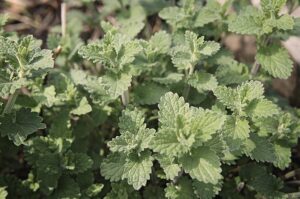Maximize Your Health: Effective Strategies for Herb Pairing to Boost Immunity
Harnessing the power of herb pairing is an essential strategy for enhancing your immune system and achieving optimal health and wellness. This approach not only highlights the distinct benefits of each herb but also illustrates how their synergistic effects can significantly strengthen the body’s defensive capabilities. In this detailed guide, we will explore the foundational principles of herb pairing, review scientific research supporting these practices, and provide an extensive list of powerful herbs that can significantly enhance your immune response.
Understanding Synergy: How Combining Herbs Amplifies Immune Function

The concept of synergy in herbal medicine indicates that the combined effects of various herbs can exceed the individual benefits of each. When discussing herb pairing for enhanced immunity, it’s critical to acknowledge that certain herbs can boost each other’s effectiveness, resulting in a more powerful immune response. For instance, the combination of echinacea and elderberry synergistically enhances each other’s immune-boosting properties due to their unique active compounds that work together to fortify the body’s defenses.
Each herb is packed with a diverse array of bioactive compounds, including flavonoids, polysaccharides, and essential oils, all of which contribute to immune modulation. The synergy among these compounds can significantly enhance absorption rates and improve bioavailability, potentially leading to the creation of new, beneficial compounds. This synergistic effect ultimately results in a more robust immune response, equipping the body to ward off harmful pathogens effectively.
Moreover, understanding the principles of synergy empowers individuals to craft personalized herbal blends that target specific health needs. By grasping how different herbs complement one another, you can design effective combinations that not only bolster immunity but also align with your health goals.
Scientific Validation: The Research Supporting Herb Pairing for Immune Enhancement
The scientific basis for herb pairing for enhanced immunity is rapidly evolving, supported by a growing body of research that underscores the importance of combining herbs for optimal effectiveness. Studies demonstrate that particular herbal combinations can enhance immune cell activity, boost cytokine production, and reduce inflammation. For instance, the partnership of astragalus and reishi mushroom has shown impressive results in stimulating the production of white blood cells, which are vital in combating infections.
The mechanisms through which these herbs operate are closely linked to their ability to modulate the immune system. Many herbs are abundant in antioxidants, which combat oxidative stress, a major contributor to immune dysfunction. When combined thoughtfully, these herbs can create a resilient defense system, enhancing your body’s capacity to respond effectively to various health challenges.
Additionally, contemporary research increasingly affirms ancient herbal practices. For example, the pairing of Turmeric and ginger has long been a staple in Ayurvedic medicine due to its anti-inflammatory benefits, with modern studies beginning to validate these claims through compelling evidence of their joint effects on immune health. Such research highlights the potential for herb pairing for enhanced immunity to support overall wellness and promote a holistic health approach.
Key Herbs to Support Your Immune System: A Comprehensive Overview
To effectively engage in herb pairing for enhanced immunity, it is essential to identify the key herbs that play a significant role in this process. The following is a detailed overview of some of the most potent herbs celebrated for their immune-boosting properties:
1. Echinacea: Recognized widely as a top choice for immune support, echinacea is renowned for its ability to shorten the duration of colds and enhance white blood cell activity.
2. Elderberry: This powerful berry is rich in antioxidants and vitamins, making it a preferred selection for alleviating flu symptoms and enhancing overall immune function.
3. Astragalus: A cornerstone herb in traditional Chinese medicine, astragalus is valued for its adaptogenic properties. It helps the body manage stress while promoting immune resilience.
4. Ginger: A beloved culinary herb, ginger not only adds flavor but also provides anti-inflammatory benefits and improves circulation, essential for maintaining a robust immune system.
5. turmeric: Known for its active ingredient curcumin, turmeric delivers potent anti-inflammatory and antioxidant effects, making it an exceptional addition to any immune-boosting blend.
6. Garlic: With its strong antimicrobial properties, garlic is recognized for enhancing immune function and reducing the severity of colds and flu.
7. Reishi Mushroom: Often dubbed the “mushroom of immortality,” reishi is esteemed for its ability to modulate the immune system and promote longevity.
8. Holy Basil: This herb acts as an adaptogen, helping to manage stress and inflammation, both essential for maintaining a strong immune system.
By becoming acquainted with these essential herbs and their unique attributes, you can effectively delve into herb pairing for enhanced immunity, crafting combinations that maximize the benefits of nature’s pharmacy. Each herb offers distinctive advantages; together, they form a powerful defense against illness.
Implementing Herb Pairing: Practical Strategies to Boost Your Immunity

Having established the fundamental principles and benefits of herb pairing for enhanced immunity, let’s explore practical strategies for seamlessly incorporating these insights into your daily routines. This section will emphasize smoothly integrating herb pairs into your meals, adjusting them according to seasonal changes, and addressing specific health concerns.
Daily Practices: Incorporating Herb Pairs into Meals for Immune Support
Integrating herb pairing for enhanced immunity into your daily meals is a practical method for strengthening your immune system. Start by identifying which herbs best align with your lifestyle and health objectives. For example, a daily herbal tea blend featuring echinacea and elderberry serves as a tasty and effective way to support your immune health.
Kick off your day with a soothing cup of ginger and turmeric tea. This delightful concoction not only comforts the senses but also provides significant anti-inflammatory benefits, setting a positive tone for your day. To prepare this tea, simply simmer fresh ginger and turmeric root in water, adding a splash of lemon and honey for an extra flavor boost.
Furthermore, enhancing your meals with herbs can transform your culinary experiences. For instance, adding garlic to your favorite recipes not only elevates flavor but also strengthens immunity. Pair it with onions and broccoli in a vibrant stir-fry to create a nutrient-rich dish that aligns with your health and wellness goals.
Additionally, consider creating a homemade herb-infused oil or vinegar for dressings or marinades. A blend of rosemary and thyme can add both flavor and health benefits when drizzled over salads, encouraging a mindful eating approach while reaping the rewards of herb pairing for enhanced immunity.
Seasonal Adjustments: Tailoring Herb Pairing Throughout the Year
As seasons change, so should your strategy for herb pairing for enhanced immunity. Each season brings unique challenges that can influence our immune systems, and modifying your herb pairings accordingly can help maintain optimal health year-round.
In colder months, when colds and flu are more prevalent, incorporating warming herbs like cinnamon and ginger can be particularly beneficial. These herbs provide warmth and enhance circulation, keeping your immune system active. A comforting cinnamon and ginger chai makes an excellent beverage that warms the body while offering protective benefits.
Springtime brings renewal, making it the perfect opportunity to focus on detoxifying herbs. Combining dandelion with nettle creates a potent detox blend that aids in cleansing the body and prepares it for the warmer months ahead. These herbs can be enjoyed in teas or as a revitalizing green smoothie.
During summer, when allergies may peak, consider utilizing herbs like holy basil and nettle to alleviate symptoms. Both are recognized for their anti-inflammatory properties and can assist in regulating the immune response. A refreshing herbal lemonade featuring these herbs will keep you cool while simultaneously supporting your immune health.
As autumn approaches, get ready for changing weather by incorporating elderberry into your routine. This herb is particularly effective in strengthening the immune system during seasonal transitions. Elderberry syrup makes a delightful addition to your pantry, ready to enhance your immune system as needed.
By adjusting your herb pairings in line with seasonal changes, you can proactively engage in herb pairing for enhanced immunity, ensuring your body is well-prepared to tackle the specific challenges each season presents.
Targeted Immune Support: Custom Herb Pairings for Specific Health Issues

Recognizing that specific health challenges require tailored strategies is crucial when practicing herb pairing for enhanced immunity. Certain herb combinations can effectively target specific health concerns, providing a focused approach to enhancing your immune response.
For individuals facing chronic stress, which is known to suppress the immune system, consider pairing ashwagandha with Rhodiola. Both herbs are adaptogens that work together to help the body manage stress, ultimately supporting immune health. Regularly incorporating this combination into your routine, whether in a morning smoothie or capsule form, can bolster your defenses against illness.
A blend of thyme and oregano can be particularly advantageous for respiratory health. Both herbs possess antimicrobial properties and can relieve respiratory issues. A herbal steam inhalation featuring these herbs can provide immediate relief while promoting overall lung health.
For those prone to digestive disturbances, pairing peppermint with fennel can support gut health, a fundamental aspect of immune function. Both herbs are celebrated for their soothing effects and can be enjoyed in a calming tea after meals.
Moreover, considering emerging research on the gut-immune axis, incorporating herbs like slippery elm and marshmallow root can contribute to maintaining a healthy digestive tract. These herbs help soothe the mucous membranes in the gut, promoting a balanced microbiome essential for optimal immune function.
Targeted herb pairings not only address specific health issues but also empower individuals to take an active role in their health journey, making herb pairing for enhanced immunity a personalized and pragmatic approach.
Merging Ancient Wisdom with Modern Science in Herb Pairing for Immunity
The intersection of traditional herbal practices and contemporary scientific research provides a robust foundation for understanding herb pairing for enhanced immunity. This section will explore the historical context of herb pairing, the validation of these practices through modern studies, and the seamless integration of traditional knowledge with current scientific advancements.
Historical Insights: The Role of Herb Pairing in Traditional Healing Systems
Throughout history, various cultures have utilized the medicinal potential of herbs. Traditional medicine systems such as Ayurveda and Traditional Chinese Medicine (TCM) have long recognized the importance of herb pairing for immunity. These ancient practices offer a wealth of knowledge regarding effective herb combinations.
In Ayurveda, herbs are often paired based on their energetic properties—warming or cooling, invigorating or calming. A classic example is the combination of turmeric and black pepper, where piperine from black pepper enhances the bioavailability of curcumin found in turmeric, thereby amplifying its immune-boosting effects.
TCM emphasizes balancing yin and yang by selecting various herbs for their complementary characteristics. The pairing of astragalus with Ganoderma (reishi mushroom) exemplifies this principle, as both work synergistically to strengthen the body’s Qi, or vital energy, ultimately boosting overall immunity.
These traditional pairings often emerge from centuries of empirical observation, where practitioners have noted the results of herb combinations in practice. This historical context reinforces the potential of herb pairing for enhanced immunity to integrate time-honored wisdom with modern needs.
Modern Evidence: Validating Time-Tested Herb Pairing Practices
As a holistic approach to health gains traction, contemporary research increasingly affirms the principles underlying traditional herb pairings. Scientific investigations have scrutinized the mechanisms by which these combinations function, providing clearer insights into their efficacy.
For example, numerous studies have explored the effects of combining echinacea with various other herbs. Research suggests that this pairing can enhance echinacea’s immune-modulating effects, supporting its efficacy in preventing and treating upper respiratory infections. Such findings lend credibility to the historical use of these herbs, reaffirming the significance of herb pairing for enhanced immunity.
Additionally, modern pharmacological research has identified specific compounds within these herbs that contribute to their immune-boosting properties. For instance, polysaccharides found in elderberry have demonstrated the ability to inhibit viral replication, while flavonoids present in ginger exhibit anti-inflammatory effects. Understanding these compounds allows researchers to better articulate the advantages of herb pairings and their role in supporting immune health.
Clinical trials and meta-analyses increasingly support the effectiveness of herbal combinations, paving the way for greater acceptance of herbal medicine within conventional healthcare. This validation emphasizes the importance of merging traditional wisdom with modern science to develop effective, evidence-based herbal remedies.
Integrating Traditional and Modern Approaches to Herb Pairing
Bringing together traditional and contemporary methods in herb pairing for enhanced immunity is essential for fostering a comprehensive understanding of health. This integration enables individuals to benefit from empirical knowledge and scientific advancements, resulting in more effective health interventions.
Practitioners are increasingly blending traditional insights with modern research to formulate herbal blends. For example, a practitioner may recommend a combination of ashwagandha and Rhodiola based on traditional adaptogenic principles while citing modern studies that highlight their effectiveness in stress management and immune support.
Moreover, the rise of integrative medicine, which combines conventional treatments with complementary therapies, has opened new pathways for herbal medicine. Healthcare professionals are progressively recognizing the role of herbal pairings in enhancing immune health and fostering collaborative approaches to patient care.
With an increasing number of individuals seeking natural alternatives to pharmaceuticals, the demand for well-researched, effective herbal combinations is becoming more evident. By embracing the synergy of herb pairing for enhanced immunity, individuals can utilize the best of both worlds, creating a more comprehensive and effective health and wellness strategy.
Practical Applications of Herb Pairing for Immune Support: Recipes and Preparations
After examining the key principles and strategies behind herb pairing for enhanced immunity, it is essential to focus on practical applications within the kitchen. This section will present straightforward recipes for herbal teas, soups, broths, tinctures, and extracts that illustrate effective herb pairings.
Herbal Teas: Simple and Effective Recipes for Immune Support
Crafting herbal teas is one of the most accessible ways to experience the benefits of herb pairing for enhanced immunity. These infusions not only provide hydration but also enable the body to absorb the beneficial compounds inherent in various herbs.
To create a potent immune-boosting tea, start with a base of echinacea and elderberry. Combine equal parts dried echinacea root and elderberries in a teapot. Pour boiling water over the herbs and allow them to steep for 10-15 minutes. This tea can be enjoyed daily, especially during cold and flu seasons, to provide a protective boost.
A delightful alternative features ginger and lemon balm. Slice fresh ginger root and add it to boiling water along with a handful of fresh lemon balm leaves. Allow it to steep for 10 minutes to create a refreshing tea that supports digestion and immunity.
For a soothing evening tea, consider blending chamomile and holy basil. Both herbs promote relaxation while offering immune support. Steep dried chamomile flowers and holy basil leaves in hot water for 10 minutes. This calming tea is perfect for unwinding after a long day.
Experimenting with various herb combinations can lead to unique discoveries, allowing you to enjoy the benefits of herb pairing for enhanced immunity in a comforting and enjoyable manner.
Wholesome Soups and Broths: Nourishing Meals with Herb Pairings
Soups and broths are not only nourishing but also provide an excellent medium for incorporating herb pairings for enhanced immunity. They facilitate the gentle extraction of nutrients and flavors from herbs, resulting in a wholesome meal that supports overall health.
A classic immune-boosting soup featuring garlic, ginger, and turmeric can be easily prepared. Begin by sautéing minced garlic and ginger in olive oil until fragrant. Add vegetable or chicken broth, diced vegetables, and a teaspoon of turmeric. Simmer until the vegetables are tender, finishing with a squeeze of lemon juice for added vitamin C.
For a hearty broth, consider using astragalus and shiitake mushrooms. Simmer these ingredients in water for several hours to create a rich, nutrient-dense broth. This broth can serve as a base for soups or be enjoyed on its own to enhance immune function.
Another delightful option is a lentil soup enriched with thyme and rosemary. The earthiness of these herbs pairs beautifully with lentils, resulting in a satisfying and nourishing dish. Cook lentils with diced tomatoes, vegetable broth, and your choice of herbs for a comforting meal that promotes immunity.
Incorporating these recipes into your weekly meal prep ensures you consistently benefit from herb pairing for enhanced immunity while enjoying delicious, hearty meals.
Concentrated Herbal Preparations: Tinctures and Extracts for Immune Support
For those aiming to maximize the benefits of herbs, tinctures and extracts offer concentrated forms of herb pairing for enhanced immunity. These preparations allow for easy incorporation into daily routines and deliver potent doses of herbal compounds.
Creating a simple herbal tincture is straightforward by combining dried herbs with high-proof alcohol in a glass jar. A blend of echinacea, elderberry, and astragalus works exceptionally well for immune support. Fill the jar with the herbs, cover them with alcohol, and seal tightly. Let the mixture sit for 4-6 weeks, shaking occasionally, before straining out the herbs. This tincture can be taken in small doses during cold and flu season for an added immune boost.
Alternatively, prepare a glycerin extract, which is an excellent option for those wishing to avoid alcohol. Follow the same process, substituting vegetable glycerin for alcohol. The result is a sweet, concentrated herbal extract that can be added to water or tea.
Consider crafting herbal syrups using honey and herbs like elderberry or ginger. These syrups can be taken by the teaspoon during illness or mixed into teas for added flavor and immune support.
By exploring tinctures and extracts, individuals can harness the power of concentrated herbal medicine in their everyday lives and leverage the full potential of herb pairing for enhanced immunity.
Ensuring Safe Practices in Herb Pairing for Immune Support
Safety is paramount when embarking on any health regimen, particularly when exploring herb pairing for enhanced immunity. This section will examine potential allergic reactions, drug interactions, and guidelines for dosage and duration to ensure the safe and effective use of herbs.
Recognizing Allergic Reactions: Identifying and Avoiding Potentially Harmful Herbs
While herbs can deliver numerous health benefits, it is essential to remain vigilant about potential allergic reactions, especially when practicing herb pairing for enhanced immunity. Some individuals may have sensitivities to specific herbs, resulting in adverse reactions.
Common allergens include herbs such as chamomile, which is related to ragweed, and echinacea, which may provoke responses in individuals with allergies to similar plants. It’s advisable to perform a patch test or start with a very small quantity of a new herb to monitor your body’s response before fully incorporating it into your regimen.
If you experience symptoms such as itching, swelling, or gastrointestinal discomfort after consuming a particular herb, discontinue its use immediately and consult a healthcare professional. Keeping a journal to track your herbal intake and any reactions can assist in identifying problematic herbs.
Furthermore, if you have known allergies or sensitivities, consulting with a healthcare provider or a qualified herbalist before starting any new herbal regimen is highly recommended, particularly when exploring herb pairing for enhanced immunity.
Avoiding Drug Interactions: Understanding Herb Pairing with Medications
One of the most critical considerations when integrating herbs into your health routine is the potential for drug interactions. Certain herbs may influence the metabolism of medications, altering their effectiveness and potentially leading to adverse effects.
For instance, St. John’s Wort is known to interact with various medications, including antidepressants, birth control pills, and blood thinners. Similarly, garlic can enhance the effects of anticoagulants, potentially increasing the risk of bleeding. When considering herb pairing for enhanced immunity, it is crucial to research how specific herbs might interact with any medications you are currently taking.
Consulting with a healthcare provider before starting any new herbal products is advisable, especially for individuals on prescription medications, pregnant or breastfeeding women, or those with chronic health conditions. This proactive approach can help mitigate the risks associated with herb-drug interactions.
Establishing Safe Dosage and Duration: Guidelines for Herb Pairing
Determining the appropriate dosage and duration for herb pairing for enhanced immunity is vital for achieving desired effects while minimizing potential side effects. Different herbs have varying recommended dosages, and adhering to these guidelines is critical.
When introducing new herbs into your regimen, start with lower doses and gradually increase as you monitor your body’s response. For example, when using tinctures, begin with a few drops and observe how your body reacts before adjusting the dosage. Always consult the product label or a healthcare professional for specific dosing recommendations.
Duration is also important; herbs should not be used continuously without breaks. For many herbal supplements, a cycle of use (e.g., 6-8 weeks, followed by a 2-week break) can prevent the body from becoming accustomed to the herb, ensuring ongoing effectiveness.
By adhering to these safety considerations, individuals can confidently explore herb pairing for enhanced immunity, improving their health while minimizing potential risks.
Customizing Herb Pairing for Enhanced Immunity: Personalization Strategies
Recognizing that health is not a one-size-fits-all concept is crucial when exploring herb pairing for enhanced immunity. This section focuses on tailoring herb pairs to individual health profiles, adapting them to lifestyle considerations, and understanding when to seek professional guidance.
Tailoring Herb Pairings to Individual Health Profiles
Personalization is a key aspect of herb pairing for enhanced immunity. Each individual’s health profile, which includes age, gender, existing health conditions, and lifestyle factors, can influence the most beneficial herbs.
For example, older adults may find significant benefits from astragalus, known for supporting vitality and immune function. Conversely, younger individuals might discover that herbs like echinacea are more effective in preventing common colds and infections. Those with chronic health conditions might consider incorporating herbs that specifically address their concerns, such as ginger for digestive issues or holy basil for stress management.
A valuable approach is to consult with a qualified herbalist or healthcare professional who can assist in designing a personalized herbal regimen based on your unique health profile. This tailored strategy ensures that the herb pairings effectively enhance your immune system while considering potential contraindications or interactions.
Adapting Herb Pairing to Fit Your Daily Lifestyle
Incorporating herb pairings for enhanced immunity into your daily life should be seamless and enjoyable. When selecting herbs, consider your lifestyle, including dietary preferences, work schedules, and stress levels.
For instance, individuals with busy lifestyles may prefer convenient forms of herbs, such as tinctures or capsules, that can be easily integrated into their routines. Conversely, those who enjoy cooking might opt for fresh or dried herbs to create flavorful meals that support their health.
Moreover, consider your dietary habits. If you follow a vegetarian or vegan diet, incorporating legumes, nuts, and seeds alongside herbs can create nutrient-dense meals that bolster immunity. Pairing herbs like garlic and turmeric with plant-based proteins can amplify their health benefits.
By tailoring your herb pairings to align with your lifestyle, you can cultivate a more sustainable approach to herb pairing for enhanced immunity, ensuring that your health regimen is both effective and enjoyable.
When to Seek Professional Guidance: Consulting Experienced Herbalists
While many individuals can explore herb pairing for enhanced immunity independently, there are instances when seeking expert advice is crucial. If you have chronic health conditions, are pregnant or breastfeeding, or are taking multiple medications, consulting with professionals is essential.
Herbalists and naturopathic doctors can provide valuable insights into the ideal herb pairings for your specific health needs. They can also help you navigate potential interactions and contraindications, ensuring a safe and effective approach to herbal medicine.
Furthermore, if you are unsure how to begin or feel overwhelmed by the vast array of available herbs, a professional can guide you in selecting the most suitable options for your health objectives. By seeking expert advice, you can confidently embark on your herb pairing for enhanced immunity journey, maximizing the benefits while minimizing risks.
Emerging Trends and Future Directions in Herb Pairing for Immunity
The field of herbal medicine is continuously advancing, with new discoveries and trends shaping the landscape of herb pairing for enhanced immunity. This section will explore emerging herbs, technological advancements in herbal preparation, and sustainable practices in herb sourcing.
New Discoveries: Innovative Herbs for Immune Support
As research into herbal medicine progresses, new herbs are emerging as potential allies in enhancing immunity. For instance, herbs like cat’s claw and schisandra are gaining recognition for their immune-modulating properties.
Cat’s claw, derived from a vine native to the Amazon rainforest, has shown the ability to enhance immune function and reduce inflammation. Similarly, schisandra, often termed the “five-flavor fruit,” is highly esteemed in TCM for its adaptogenic properties and overall health benefits.
These newly recognized herbs can be seamlessly incorporated into herb pairing for enhanced immunity, providing innovative solutions for immune support. As further studies validate their efficacy, these herbs may become vital components of herbal medicine, expanding the options available for those aiming to strengthen their immune systems.
Tech Innovations: Optimizing Herb Pairing Methodologies
Technological advancements are significantly influencing herb pairing for enhanced immunity. Innovations in extraction techniques, such as supercritical CO2 extraction, preserve a broader spectrum of plant compounds, enhancing the potency of herbal preparations.
Moreover, advancements in herbal analysis and quality control ensure that consumers have access to high-quality, reliable herbal products. This is crucial for guaranteeing that the herb pairings individuals choose are safe, effective, and free from contaminants.
Additionally, online platforms and applications are emerging to assist individuals in tracking their herbal intake, monitoring health outcomes, and connecting with herbal practitioners. These tools facilitate the customization and optimization of herb pairings based on individual health profiles and requirements.
With these innovations, the future of herb pairing for enhanced immunity looks promising, offering individuals more effective and tailored approaches to support their health.
Ensuring Sustainability in Herbal Practices: Ethical Sourcing of Herbs
As the demand for herbal products continues to rise, sustainable practices in sourcing and cultivation are becoming increasingly critical. Ethical sourcing ensures that herbs are harvested in ways that protect ecosystems and respect the communities that depend on them.
When exploring herb pairing for enhanced immunity, it’s wise to select herbs from reputable sources that prioritize sustainability. Look for certifications such as organic or fair trade, indicating that the herbs are produced with environmental and social responsibility.
Furthermore, supporting local herbalists and farmers fosters sustainable practices within your community. Engaging in discussions about sourcing and cultivation enhances your understanding of the herbs you use while contributing to a more sustainable herbal industry.
By prioritizing sustainability in your herbal choices, you can enjoy the benefits of herb pairing for enhanced immunity while supporting the health of the planet and its inhabitants.
Building Community and Accessing Resources for Effective Herb Pairing
Establishing a supportive community and accessing reliable resources are essential steps in exploring herb pairing for enhanced immunity. This section will highlight online forums, educational materials, and local workshops that can enrich your herbal journey.
Online Communities: Connecting with Fellow Herb Pairing Enthusiasts
The internet has opened up a plethora of resources for herb pairing for enhanced immunity. Online forums and social media groups serve as platforms for sharing experiences, asking questions, and connecting with like-minded individuals.
Platforms such as Reddit and Facebook host numerous herbalism groups where members exchange knowledge, recipes, and insights regarding herb pairings. Engaging in these communities can yield valuable information and support as you explore new herbs and combinations.
Many herbalists and practitioners share their expertise through blogs and online courses. These resources can inform you about the latest trends and research in herbal medicine, enhancing your understanding of effective herb pairings.
Educational Resources: Books and Courses on Herb Pairing
Investing in educational resources is an excellent way to deepen your knowledge of herb pairing for enhanced immunity. Numerous books offer comprehensive insights into herbal medicine, including specific herbs, their properties, and effective pairings.
Consider titles like “Herbal Antibiotics” by Stephen Harrod Buhner or “The Herbal Medicine-Maker’s Handbook” by James Green, which provide practical guidance on utilizing herbs effectively. These resources can help you navigate the complexities of herb pairings and empower you to create your blends.
Furthermore, many herbal schools offer online courses and workshops that delve into various aspects of herbal medicine. Participating in these courses can enhance your understanding and equip you with the skills to craft personalized herbal regimens.
Local Workshops: Hands-On Learning and Community Engagement
Local workshops and community events provide excellent opportunities to learn about herb pairing for enhanced immunity in a hands-on environment. Many herbalists host classes covering topics from herb identification to creating tinctures and extracts.
Attending these workshops allows you to connect with local herbalists and fellow enthusiasts, fostering a sense of community and support. These events often provide access to fresh herbs and resources that can enhance your herbal practice.
Engaging with your local herbal community can deepen your knowledge and experience of herb pairing for enhanced immunity, making your journey toward better health a collaborative and enriching endeavor.
Frequently Asked Questions About Herb Pairing for Immunity
What benefits does herb pairing for immunity provide?
Herb pairing enhances the immune-boosting properties of various herbs through synergy, resulting in improved immune response and overall health.
How can I start using herbs in my daily routine?
Begin by selecting a few key herbs known for their immune benefits, such as echinacea or elderberry, and integrate them into teas, meals, or supplements.
Is it safe to use herbs while taking medications?
Yes, but it is essential to consult with a healthcare professional to avoid potential interactions between herbs and medications.
What are some commonly used herbs for immunity?
Key herbs for immune support include echinacea, elderberry, astragalus, garlic, and ginger, each offering unique benefits.
How can I personalize my herb pairings?
Consider your age, existing health conditions, and dietary habits to tailor herb pairings to your specific health needs, lifestyle, and preferences.
Are there any risks associated with using herbs?
Yes, potential risks include allergic reactions and interactions with medications. It’s crucial to research and consult with a professional before using new herbs.
How can I determine which herbs work well together?
Research existing herbal pairings that have proven effective historically, and consider the properties of each herb to create complementary combinations.
Can I substitute fresh herbs for dried herbs?
Yes, fresh herbs can replace dried herbs, though the quantities may need to be adjusted due to variations in potency and flavor.
What is the recommended way to prepare herbal teas?
Steep dried herbs in boiling water for 10-15 minutes, adjusting the steeping time based on your taste preferences and desired strength.
How long should I use herbal supplements?
It is generally advised to cycle herbal use, typically 6-8 weeks followed by a 2-week break, to maximize benefits and prevent tolerance.
Connect with us on Facebook!
The Article: Herb Pairing For Enhanced Immunity: An Expert’s Guide appeared first on https://mcrtherapies.co.uk
The Article Herb Pairing: Boost Your Immunity with Expert Tips appeared first on https://mcrtherapies.com
The Article Herb Pairing Tips to Enhance Your Immunity Effectively Was Found On https://limitsofstrategy.com



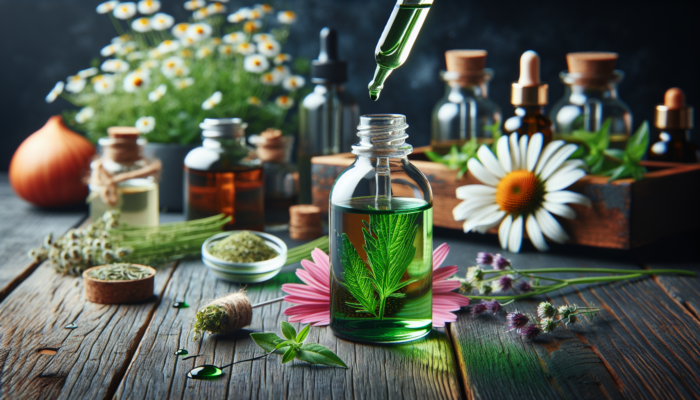





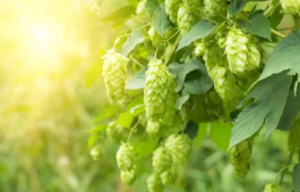 Natural Hops Extract: Relax and Sleep Better Naturally
Natural Hops Extract: Relax and Sleep Better Naturally Organic, Gentle, and Effective: Why Natural Hops Extract Fits Your Wellness Plan
Organic, Gentle, and Effective: Why Natural Hops Extract Fits Your Wellness Plan Improve Health and Wellness Naturally with Hops Extract
Improve Health and Wellness Naturally with Hops Extract

